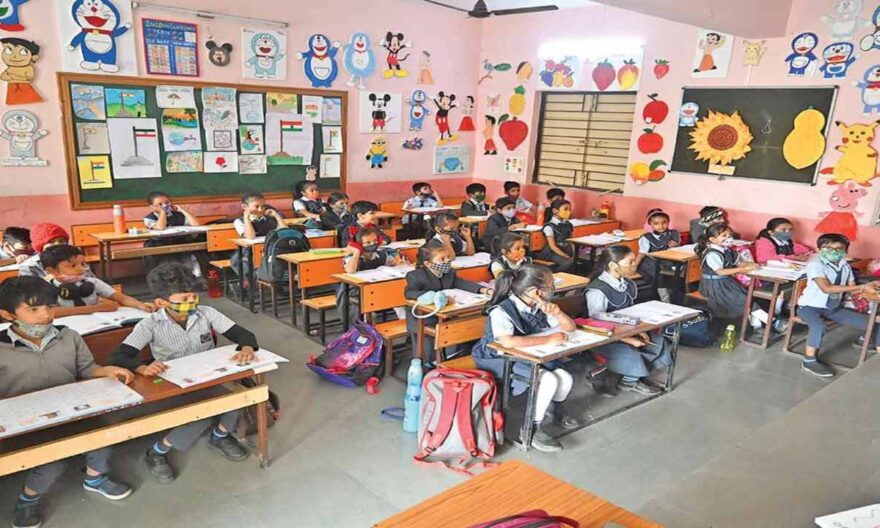
The Karnataka High Court has recently upheld the State government’s decision to establish the admission age for class-I students in Government schools, aided, and unaided schools as 6 years, starting from the academic year 2025-2026.
A single judge bench, presided over by Justice Sachin Shankar Magadum, rejected a petition filed on behalf of a 4-year-old toddler, represented by her father. The petition aimed to annul the notification/order dated 26.07.2022.
The petitioner sought enrollment in LKG for the academic year 2023-24. However, on 27th May 2023, the school informed the petitioner through an email that she was ineligible for LKG admission as she hadn’t reached the age of 4 years by 1st June,2023. Consequently, the school indicated that the petitioner should continue in Nursery.
The petitioner contended that her admission to Nursery was based on a previous notification dated 11.03.2020, which stipulated a minimum admission age of 5 years 5 months for class-I and 3 years 5 months for LKG. The petitioner argued that the subsequent challenged notification should not apply retroactively to her and that any changes to the minimum admission age for class-I must be implemented prospectively.
The State countered the plea, asserting that the determination of the minimum admission age was in accordance with the Right of Children to Free and Compulsory Education Act, 2009, and the National Education Policy (NEP), 2020.
The court noted that the respondent-school is administered by the Central Government through its Ministry of Education, making it obligated to adhere to NEP’s guidelines.
“The respondent No.4 has adopted NEP, 2020 and therefore, the eligibility criteria of minimum and maximum age for registration for admission to class-I and above is rightly modified by respondent No.4 which is obviously in terms of mandate of NEP, 2020. The admission guidelines issued by respondent No.4 and by the State are found to be legal, valid and in conformity with NEP, 2020,” the bench stated.
Rejecting the petitioner’s argument for prospective implementation of the guidelines, the court stated, “The NEP guidelines in fixing the age criteria is based on overall global education standards…Experts have come up with new guidelines with a hope that a strong foundation of early childhood care and education would be given to the students and this is obviously aimed at promoting play-based, activity-based, inquiry-based and flexible way of learning.”
It further emphasized that it cannot interfere with educational guidelines established by the competent authority based on expert opinions. It noted that the NEP, while introduced relatively late, still holds merit and aligns with promoting holistic student development.
The court acknowledged the petitioner’s argument that the change in age criteria under NEP, 2020 might be belated, but it affirmed that this isn’t sufficient grounds for intervention. It underscored that the RTE Act, 2009 designates the Kendriya Vidyalaya Sangathan under a distinct category, and branches across the nation must adhere to uniform criteria set by the same management.
In light of these considerations, the court dismissed the petition.




